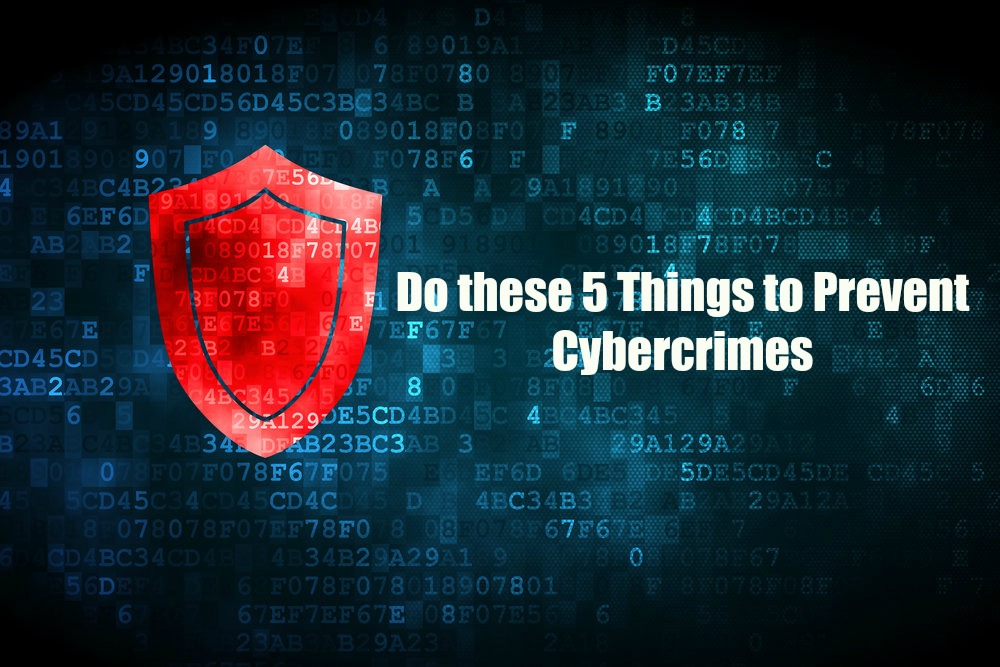Wasp Barcode Technologies: The Barcode Solution People
Do these 5 Things to Prevent Cybercrimes

In 2015, we saw some of the most high-profile companies suffer costly cybercrimes, including the
US Office of Personnel Management, U.S. health insurance firms Anthem and Premera, hotel chains Mandarin Oriental, Hilton and Trump Hotels, mobile and broadband firm TalkTalk, and Hong Kong-based toymaker VTech.
Data breaches set those companies back to the tune of nearly $4 million, according to recent research by IBM and the Ponemon Institute, which
surveyed 350 companies worldwide.
[Tweet "Data breaches set those companies back to the tune of nearly $4 million."]
That’s pocket change compared to the $19 million U.S. retailer Target has agreed to pay banks issuing MasterCard to help them recover losses suffered in 2013.
This particular data breach affected 40 million accounts.
The average total cost of data breaches has increased 23 over the past two years, and it’s estimated that the cost of cybercrime could increase 82 percent over the next six years.
Small and medium sized businesses (SMBs), like yours, have a problem. They often
lack the necessary security policies to protect themselves against cybercrimes. This makes you an easy target for hackers.

"Over 80 percent of small businesses in the United States use cloud services, and therefore are vulnerable to cyber-attacks,” cyber security and technology strategist
Elena Kvochko said in an
Entrepreneur article. "The primary concerns for [businesses] are security of customer information and intellectual property and extortion of information that can be used for financial gain.”
While your business can’t be absolutely secure, Kvocho added that there are plenty of ways small businesses in particular can protect themselves or at least mitigate the potential impact of cyber-attacks.
These are the
top four cybercrimes committed in the past five years, according to the National Crime Prevention Council:
- Nondelivery or nonpayment for merchandise between sellers and purchasers (14.4 percent)
- FBI scams: Cybercriminals posting as FBI to defraud victims. (13.2 percent)
- Identity Theft: unauthorized use of personal information to commit crimes information (9.8 percent)
- Computer crimes: facilitated by a computer or to target a computer (1 percent)
Cyber threats are on the rise and regulatory requirements continually change. So your business needs to be prepared by evolving its security needs to keep up. Here are some steps you can take to safeguard your business:
1. Make email security a priority
Discourage hackers by encrypting company emails and other communications. Doing this forces a hacker to get through another layer of protection. That’s normally not worth their time, especially when they can find another company to hack with a lot less hassle. Encryption is just another roadblock that can help protect your information.

2. Enforce password policies
Your employees are the most vulnerable to cyberattacks. So communicate how crucial strong, smart passwords are to upgrade cyber security. You might hear moans and groans about long, difficult passwords that are impossible to remember. But as a business owner, it’s essential that you enforce a company policy to mandate them.
Some tips for creating smart passwords include:
- Don’t use the same passwords across multiple platforms.
- Do change passwords often – it’s recommended every three months at a minimum.
- Do not store passwords in the cloud or on sticky notes around the office. Use a password management software platform such as 1Password, PassPack and LastPass. These may cost a small fee, but it’s worth it to avoid attacks in the long run.
- Do use two-factor authentication features when possible. It will require users to enter an additional pin number or even a fingerprint to gain access. This is difficult for a hacker to replicate.
3. Know the warning signs of a cybercrimes
Be sure employees know how to spot a possible cybercrime, like a harmful email or phishing scam. As a whole, email providers have improved procedures to filter out these threats before they even land in your inbox. However, many scams still get missed. Some will even show as being from a client or a recognizable brand. Still, these types of scams do come with a couple of red flags, such as:
- The email asks for personal or credit card information, makes a request for immediate action for something unfamiliar (i.e. You don’t remember having owned stocks in Nigeria), and emails that include suspicious attachments. If you receive an email like this, get a co-worker’s opinion and report it as spam to your email service provider. But never, ever forward or reply to the email. You can also file a phishing complaint or blacklist the domain in your email settings or even report to the Federal Trade Commission.
- The email contains a lot of spelling mistakes or weird looking links should also be looked at with suspicion. Even if the link appears to be normal, it could download unwanted and malicious software onto your computer. This is where strong anti-virus software can be helpful.
4. Make malware, spyware and firewall software mandatory
Malware infects your network in several ways, including infected email attachments, infected removable storage media like thumb drives, downloaded software like mobile apps, or links on an email, social media, or instant messages. Malware, spyware, or firewall software protects your network against these issues before they can develop into full-fledged emergencies.
5. Do business with reputable vendors
Don’t provide a vendor with any financial or personal information before doing your homework. Once you’re sure they are reputable, you can proceed with your interaction.
On the bright side, 2015 also saw more collaboration between law enforcement organizations to combat cybercrime through breaking up cybercrime infrastructures. Fortunately, these efforts have resulted in significantly more arrests globally.
As a sensible small business, you can’t ignore these threats. Taking the aforementioned measures will help thwart potential cyber-attacks on your business.
 In 2015, we saw some of the most high-profile companies suffer costly cybercrimes, including the
In 2015, we saw some of the most high-profile companies suffer costly cybercrimes, including the 



